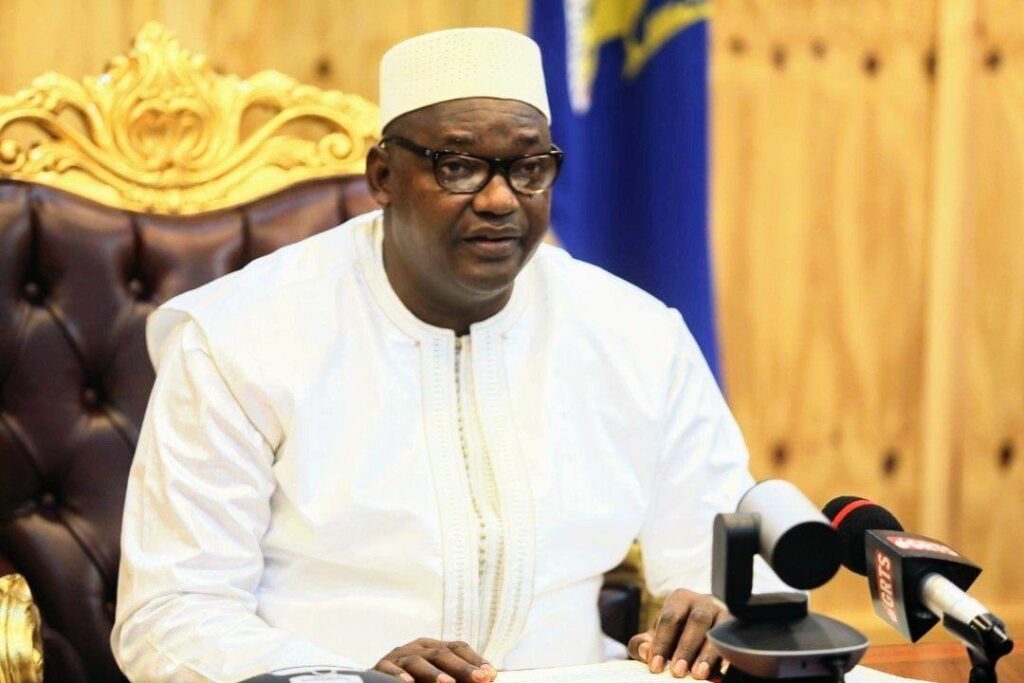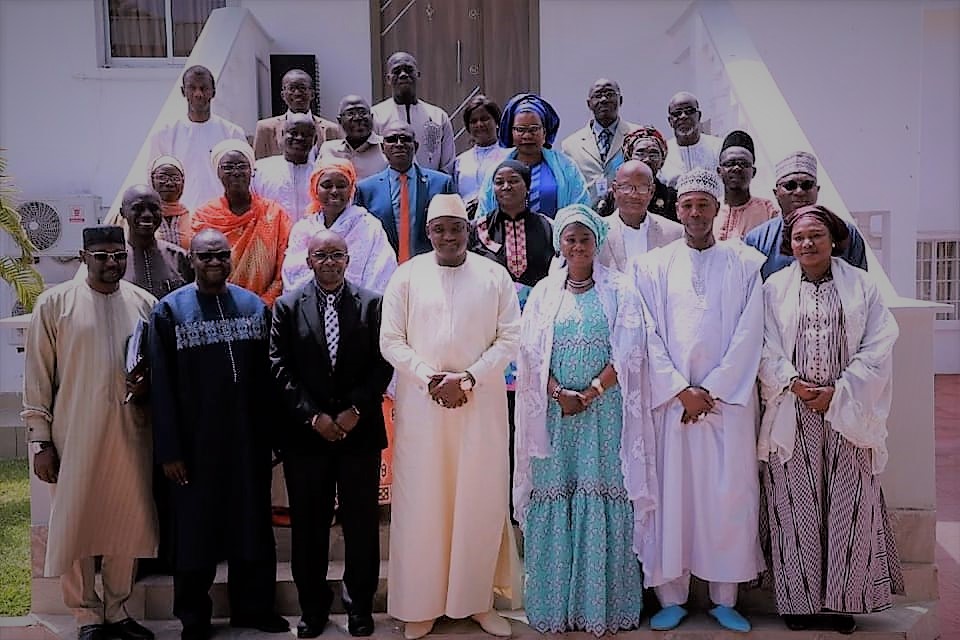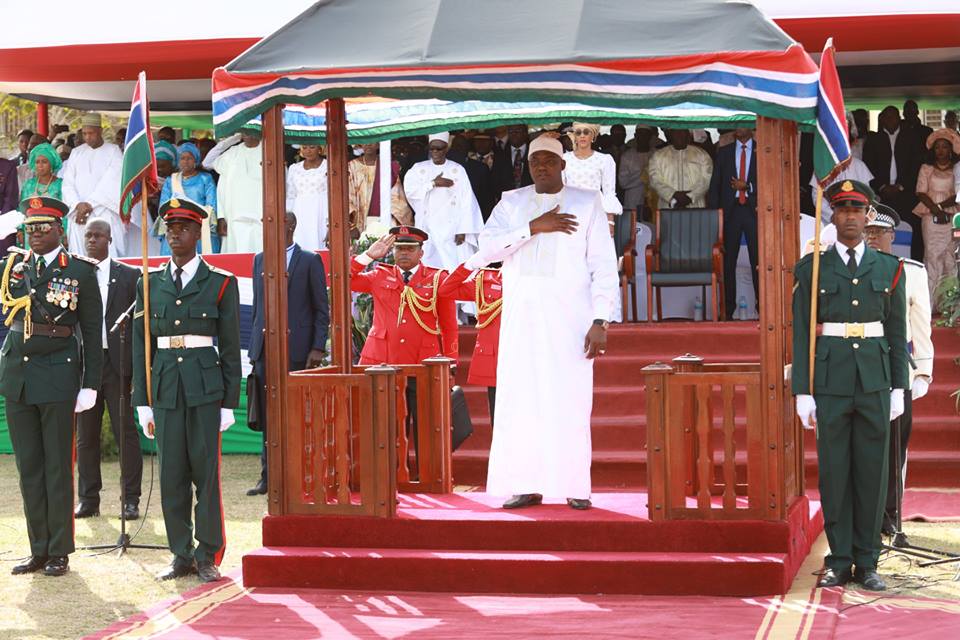
Mr. President, as you are about to announce your new cabinet ministers, we want to remind you of the constitutional and moral obligations that you and your cabinet ministers to publicly declare your assets and liabilities before your ministers take their oath of office.
Mr. President, when people decide to hold public office, they automatically choose to put themselves in positions subject to public scrutiny.
In some way, the line between their private and public lives becomes blurred. As a result, they render their affairs from their asset and liabilities position a subject of public discourse. This is why all cabinet ministers and other public officers are legally required to declare their financial positions publicly.
Mr. President, asset and liabilities declarations of public officials are a powerful tool to prevent corruption and detect illicit enrichment and conflicts of interests.
According to the World Bank, more than 150 countries have introduced asset disclosure requirements for their public officials. Many of these countries make asset and liabilities declarations available for public scrutiny.
Public access to declarations multiplies their anti-corruption value, as civil society and journalists often play a crucial role by uncovering irregularities and triggering formal verification of declarations by anti-corruption/asset declaration agencies. This will be important in the Gambia, with a vibrant civil society and a vibrant independent media.

Public disclosure of the private assets of public officials and family members does not clash with the rights to privacy and data protection.
However, both rights are not absolute and can be restricted provided there is a basis in law, and a legitimate public interest justifies the restriction. For example, preventing corruption and exposing an unexplained wealth of officials are serious and legitimate public interests.
Mr. President The Gambian Constitution Section 223(1) of the Constitution mandates a public officer, including the President, to “submit to the Ombudsman a written declaration of all property and assets owned by him or her, and of liabilities owed by him or her, whether directly or indirectly.”
Mr. President, the benefits of asset and liabilities disclosures are recorded keeping on what a person owns before assuming public office or while in public office.
It engenders transparency and accountability and discourages corruption and illegal amassing of wealth in public office (1)para.
Moreover, (b) and (c) mandate public officers to declare their assets and liabilities owed every two years and when they cease to hold public office.
Therefore, Mr.President, you and your Cabinet Ministers shall declare your assets and liabilities after being sworn into public office.
Failure to do so, you must immediately publicly disclose your assets to give the general public an accurate picture of your assets and liabilities with your Vice-President and Cabinet members.
In addition, it will send a powerful message that it will not be business as usual with your government. This will also follow the best practice and boost your government’s fight against corruption and impunity.

Mr. President, public disclosure of assets and liabilities provides a baseline and means of assets to identifying assets that might have been corruptly acquired and for which a public official might legitimately be asked to account.
However, Mr. President and your vice-president, and all cabinet members should make public your assets and liabilities declarations to increase transparency in government functionaries fulfilling the constitutional requirement of submitting your asset declaration in public.
We urged you, Mr. President, to urgently take measures to seek an amendment to the law relating to the declaration of assets to include the requirement of public disclosure to bring it in line with international standards and best practices such as the United Nations Convention against corruption.
Furthermore, the President, vice-president, and Cabinet members should make public their asset and liabilities declarations to increase transparency in government functionaries that fulfill the constitutional requirement of publicly submitting their asset declarations.
For years, there have been calls for transparency and public disclosure of assets of elected and public officials, as these will improve the confidence of the people and foreign investors in the government’s integrity and good governance.
Mr. President, asset declaration requires public officials to declare their income, asset, liabilities, and financial interests. In many countries, public officials must report their assets and income and the assets and income of spouses, children, and immediate family members.
Therefore, asset profiling should include those of their spouses, dependents, immediate family members, and any business interests or institutions they may be part of.
Mr. President, Gambians are saying now that making asset disclosures in public will take it a step further in accountability and transparency. When you and your cabinet members make your declaration public, other public officers will have no excuse to follow suit.
However, unfortunately, the assets declarations were not made public in your previous government. A government is run on trust and integrity. This was one of your selling points, Mr. President, during your campaign when you made a solemn covenant with the Gambians.
So there is no reason to turn away from that path of honor that you have promised Gambians not to violate the constitutional directive? The primary goal of asset and liabilities declaration is to combat corruption, Mr. President.
In many cases, information published in asset declarations has led to the exposure of substantial unjust enrichment. Asset and liabilities declaration will undoubtedly answer many allegations and doubts and allay fears over corruption and misappropriation.
After years in office, it will reveal public officials’ latest properties and assets and show asset declarants’ upsurge or downward savings. In addition, the liabilities incurred personally by a public office holder will also be revealed.

Therefore, Mr. President, as we rightly seek new beginnings for our country, we need you to reinsert and reassert the public into this process of transparency and accountability by lifting the veil of secrecy from the declared assets of our public officers.
I believe that all Cabinet Ministers and other senior public officers should be required to display their assets publicly. Otherwise, the impact of the asset declaration exercise will be successfully neutered.
Mr. President, your Executive Order of June 23, 2017, authorizing your Cabinet Ministers to declare their assets, was a mere a rubber stamp to hoodwink people because no one has access to the records.
Moreover, there is no known mechanism for its enforcement. Universally accepted standards of asset declaration stipulate that the President and members of his cabinet ministers disclose all assets, liabilities, and business interests—as well as those of their spouses or any assets held on their behalf—upon election or appointment.
Such a declaration is supposed to be made in writing to the Speaker of the National Assembly within three months of their election or appointment.
Mr. President, it is very unclear in your previous Executive Order and the importance of your government officials to be publicly accountable to the citizenry; it has not proven easy to implement practically binding principles observed by those in high office.
Indeed, it has become a thorny issue among politicians in The Gambia. For example, nobody wants to detail their (often unexplained) property or wealth. Hence, the declaration of assets and liabilities before the office of the Ombudsman alone falls short of the commitment to declare assets publicly.
Mr. President, a public declaration of assets would boost your fight against public sector corruption. However, Mr. President, you had issued an Executive Oder in your first term that all Cabinet Ministers would publicly declare their assets and liabilities.
In addition, Mr. President, it would be best to encourage all cabinet appointees to declare their assets and liabilities as a pre-condition publicly.
Mr. President, according to Transparency International, most countries expect top leaders to publish information about their assets. When they do not, or if the figures do not seem to add up, as is happening in Argentina, Nigeria, and Brazil, this can lead to public unrest and political instability.
The organisation noted that the United States’ approach to asset declarations is often considered a model because it is comprehensive and transparent. Although there is no requirement to audit declarations in the US, they are available to the civil society upon request.
Mr. President, as you continue your raging war against public sector corruption, Gambians are looking forward to your cabinet ministers and other senior public officers before taking their oath of office to publicly declare their assets and liabilities to the Office of the Ombudsman.
Mr. President, a public asset declaration and liabilities will boost transparency and credence to your anti-graft campaign. After all, he who comes to equity must come with clean hands.
Asset and liabilities declarations of cabinet ministers and senior government officials, and other public officials are not meant to be a perfunctory exercise in box-ticking.
On the contrary, they are primarily instruments of transparency and accountability, potentially powerful mechanisms of sunshine that could help inefficient ways and limit the incidence of corruption, one of the significant challenges of our country.
By Alagi Yorro Jallow











Recent Comments